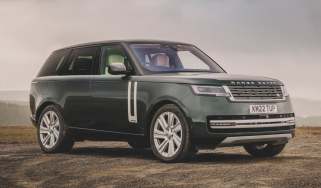Lexus IS220d SE-L
If there's one thing modern executive cars simply can't do without, it's a diesel engine. Unless there's a frugal oil-burner in the line-up, buyers will turn away.
If you expect the first diesel Lexus to be a sports saloon, you'll be disappointed. It is, however, one of the most accomplished and refined oil-burners around. Exceptional refinement and a mature character create a superb long-distance cruiser. We'd like an auto alternative, but the IS diesel makes the line-up stronger than ever.
If there's one thing modern executive cars simply can't do without, it's a diesel engine. Unless there's a frugal oil-burner in the line-up, buyers will turn away.
Even so, Lexus has been getting by without a diesel for the past 15 years, trading on build quality, refinement and dealer service. But this couldn't go on for ever, and the Japanese firm has finally reacted to the European demand for oil-burners. It has built its first model to drink from the black pump - the IS220d.
On sale in January, together with a V6 petrol - tested by Auto Express in Issue 882 - the all-new IS will have a complete line-up to take on the BMW 3-Series, Audi A4 and Mercedes C-Class.
While the larger GS and the next-generation luxury LS will both achieve the desired mix of low emissions and excellent economy by using petrol/electric hybrids, for the cheaper compact executive class Lexus had no alternative but to delve into the world of derv. We took the wheel of one of the first to arrive in Europe to see how the new model measures up. The first surprise is the gearbox - it's a manual. Bosses claim that, as automatics aren't popular in diesel compact executives, it wasn't worth developing one. Instead, the IS220d has a new six-speed box which makes smooth changes, but has a long-throw lever.
Used - available now

2023 Citroen
e-C4
8,556 milesAutomaticElectric
Cash £12,995
2022 Citroen
C3 Origin
28,000 milesManualPetrol1.2L
Cash £10,795
2021 Citroen
C3 Aircross
28,000 milesAutomaticPetrol1.2L
Cash £12,795
2024 Cupra
Formentor
8,880 milesManualPetrol1.5L
Cash £21,200Once on the move, both the driver and passengers would have trouble distinguishing what's in the tank. When cruising, the Lexus is whisper-quiet, matching the refinement of the world's best luxury diesels. Only when pushed harder does the engine note take on a harsher edge, separating it from the firm's near-silent unleaded powerplants.
With an 8.9-second 0-62mph time, the IS takes only 0.5 seconds longer than its petrol stablemate to complete the benchmark sprint. However, it doesn't feel all that fast on the road. Acceleration is strong between 2,000 and 4,000rpm, but this model only really shines when cruising. Few buyers will have any complaints about running costs. Economy of 44.8mpg is excellent, while low CO2 emissions make the IS a viable option for company car drivers, too. Insurance ratings start at group 12E, which should also keep the cost of cover to a minimum. In terms of pricing, the diesel-powered IS range costs from £22,200 for the entry-level model, rising to £27,800 for the luxurious flagship.
While this looks steep compared to German rivals, buyers of high-spec versions will want for nothing in the sumptuously trimmed cabin. Lexus has done without a diesel for too long. Competitors offer a sharper driving experience, but if comfort and refinement are a priority, the IS220d could be just what you've been waiting for.



